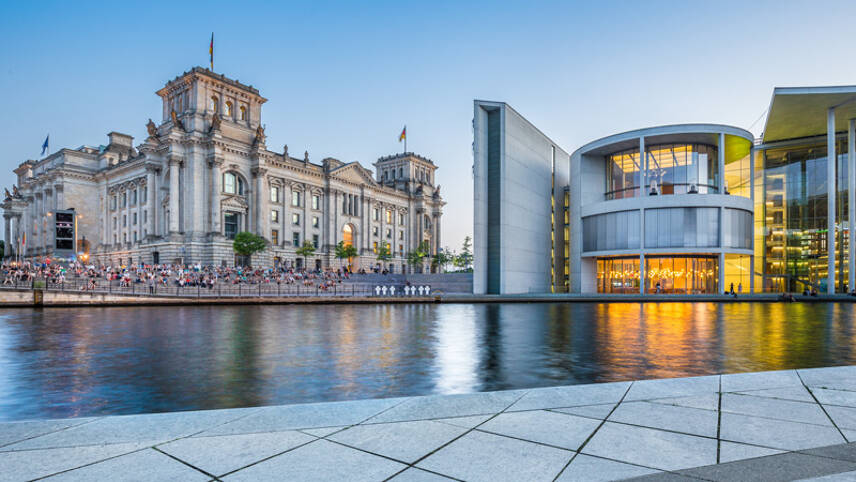Register for free and continue reading
Join our growing army of changemakers and get unlimited access to our premium content

Germany’s €200bn aid programme for the energy price crisis has sparked outrage from EU countries who warned it risked triggering a subsidy race that only Berlin could win.
On Friday (25 November), the German federal government finally agreed on the final details of the scheme that will reduce gas, heat and electricity prices for consumers and industry alike.
“The price brakes for gas, electricity and district heating are coming. We are capping the energy price so that citizens can cope with the new prices and the challenges,” explained Chancellor Olaf Scholz.
Germany’s energy support measures that will de-facto come into effect on 1 January 2023 and last until April 2024 come with a hefty price tag: €99bn, split between €56bn to subsidise fossil gas as well as district heat and €43bn for electricity.
They will be applied retroactively, as the laws will not come into effect until March 2023 due to the complexities of legally waterproofing them and upholding their larger goal: the scheme must ensure that gas savings are at a minimum of 20% compared to last year.
Under the new law, households and small businesses will receive a fixed price of 12 cents per kilowatt-hour (kWh) for 80% of their gas consumption of the previous year. The same applies to their heat contracts. Any consumption past 80% will be subject to market prices.
Companies that consume more than 1.5 million kWh annually will have access to cheaper rates. Large-scale consumers, and hospitals, regardless of size, will be able to obtain gas at a rate of 7 cents per kWh – limited to 70% of consumption until then. Heat will be cheaper for them, too, at a rate of 7.5 cents per kWh, but similarly limited to 70%.
In October, experts recommended that these businesses should be able to sell their allotted gas contingent – which sparked outrage in Berlin circles. Scholz spoke out against allowing resale, while Vice-Chancellor Robert Habeck argued in favour.
As per the laws submitted to parliament, companies can resell their allotment of cheap gas.
For major gas consumers like German chemical giant BASF, this could net the company a resale profit of around €2.bn , according to Georg Zachmann from the Brussels-based think-tank Bruegel.
BASF might not apply for state aid, though, said the company’s CEO Martin Brudermüller. Indeed, companies that receive more than €2m in aid must pledge to keep production and jobs in Germany while BASF announced it would scale back production in Europe.
Taxing ‘windfall profits’
To finance the scheme, Berlin will apply a tax on the windfall profits made by energy companies. The tax will apply from 1 December 2022 until 30 June 2023, with a possible extension until April 2024.
In the underlying calculation to determine how significant these profits are, the government will compare the production costs of coal and nuclear power plants to hourly-determined electricity prices while accounting for possible hedge or forward contracts held by these companies.
For renewables installations, a monthly average will be used. Of the resulting “windfall profits,” Berlin will take 90%.
The final compromise within the German government has drawn scathing criticism from energy and industry associations.
Chemical industry association VCI called it a “bureaucratic monster,” while the energy industry association BDEW warned that taking 90% of profits “must be limited in time.”
“This is also about confidence in Germany as an investment location. Only a measured approach will ensure that Germany can invest its way out of the current crisis,” BDEW president Marie-Luise Wolff stressed.
Meanwhile, the powerful industry association BDI said the conditions attached to the aid package were too strict. “The requirements for companies to benefit from the EU crisis aid framework are too restrictive given the force of the crisis,” the BDI said in a statement.
Germany, the big spender
German companies are hard at work lobbying Berlin to further relax EU state aid rules. To tackle the crisis, the European Commission has already quadrupled – from €500,000 to €2m – the amount of aid that governments can give to companies without requiring a green light from Brussels.
“Policymakers should now use all legal leeway also to support companies that are in serious difficulties due to high energy prices but are currently not yet covered by the EU criteria,” the BDI highlighted.
According to Bruegel, €574bn has been earmarked across EU countries to shield consumers from rising energy costs since the start of the energy crisis in September last year. And Germany leads the pack with €264bn earmarked.
This is cause for concern at the European Commission, which polices EU debt and deficit rules. In mid-October, the EU executive admonished EU governments for being too generous with state support.
Nikolaus J. Kurmayer, EurActiv.com
This article first appeared on EurActiv.com, an edie content partner


Please login or Register to leave a comment.